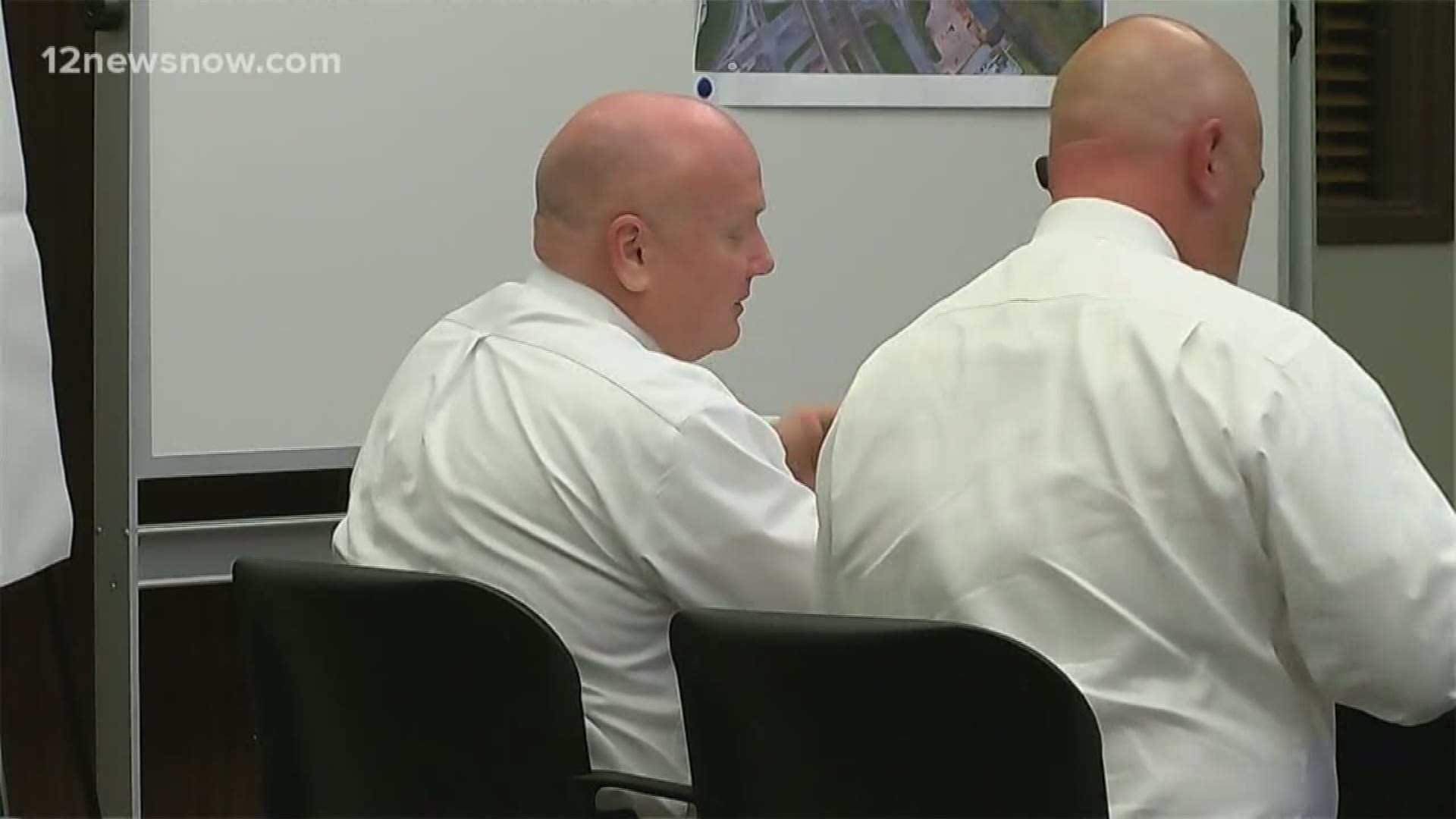GROVES — An arbitration hearing is being held at the Groves Municipal Court for officer John Rabalais.
Rabalais was accused of using excessive force during a tasing incident and was demoted from sergeant.
Marshal Norman Reynolds charged Rabalais with incompetence, and dereliction of duty for not calling off his officers from continuing to use excessive force. Rabalais was accused of unnecessarily tasing a man high on PCP, even after he was restrained. Three other officers were present for the incident. Rabalais and two other officers, who were reprimanded, used tasers on the man.
The original 911 call stated that the man was in the nude, and had assaulted multiple people.
The incident occurred in Port Arthur, but the Groves police assisted. The Port Arthur police never found the victims of assault, and the man was only charged with Public Intoxication.
Under cross-examination, Reynolds testified that the detectives called to investigate the incident interviewed no witnesses. It was revealed that in Rabalais' 15 years of service, he has never received disciplinary action.
Reynolds also explained that Rabalais has a bad attitude, and officers have left the department, but none of those officers have directly attributed their leaving to Rabalais' attitude.
Reynolds claimed the man high on PCP was rolling over in pain, but when asked if the man ever claimed to be in pain Reynolds said he was never interviewed.
Rabalais' defense claimed since the man charged at officers and their understanding was that he had been assaulting people before the police arrived, they had reason to believe the man was dangerous, and force was necessary.
A report from Axon, who makes the tasers, revealed Rabalais pulled the trigger anywhere from 4-19 times.
Albert Rodriguez was called as an expert witness to testify. Rodriguez has had experience with taser related incidents, and has received specialized training from a reconstruction law enforcement entity.
Rodriguez explained that Groves did not have a specific taser policy when the incident occurred, and they used the 1989 Supreme Court Case Graham v Connor decision to determine reasonableness of force. Since the officers understood the man was assaulting people and the man got up and ran toward Rabalais even after he was restrained, he said Rabalais had reason to use the taser.
He also explained that since the man high on PCP was nude when they arrived, he was exhibiting signs of excited delirium, because it causes the body's core temperature to rise. PCP can also have superhuman side-effects in terms of strength and speed. He said that's why even with multiple officers, the man could have been hard to control.
According to Rodriguez, the bodily fluids such as sweat and blood resulting from the mans high body temperature alone were a threat to officers, making a non-hands-on approach necessary to contain him. He said a hands-on approach increases danger for officers tremendously due to the nature of excited delirium, making a taser or pepper spray the best option.
Rodriguez viewed the body camera video from the night of the incident. He said once the man was handcuffed the officers didn't deploy the taser until the man stopped complying and attempted to stand up. However, when the man was down again he said they withdrew their tasers.
Rodriguez went on to explain that the other officers on scene, even the one that didn't use his taser, testified that the force was reasonable. On the other hand, Reynolds lawyer argued that officers would say it was reasonable even if it wasn't because they were facing repercussions.
Reynolds lawyer also claimed the man being tased back was heaving, a sign of positional asphyxia. However, Rodriguez said the movements he was making would have given officers reasonable cause to believe he was going to attack them, and only in hindsight would they reveal positional asphyxia.
Reynolds lawyer has called an expert witness from California. He will testify Friday by phone.
This is a developing story, we will update as more information is confirmed.

